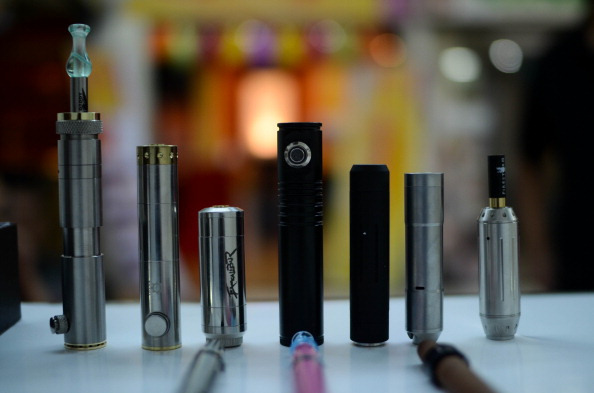An e-cigarette ad appeared on an app used for remote learning last week, prompting at least one Colorado lawmaker to weigh potential legislation to prevent it from happening again.
Rob Witwer, a former Republican state representative, posted a screengrab Friday from the Quizlet app that his son, who attends a school in the Jefferson County School District, was using, which showed an ad for IQOS — an e-cigarette from Philip Morris whose parent company is tobacco giant, Altria.
Witwer wrote, “Why are advertisements for Marlboro e-cigarettes appearing on @quizlet, an app used by kids for remote learning? Please take them down. @Altrianews.”
It’s unclear how many students may have seen the ad and how many Colorado schools or classes use the remote learning app. Quizlet did not respond to requests for that information, and the Colorado Department of Education said it does not track that.
Quizlet asked Witwer to file an official complaint and blocked the advertiser. Altria said it pulled its ads and was working with its third-party placement firm to figure out how that happened.
Now, state Rep. Colin Larson, a Littleton Republican, is talking to the attorney general’s office to assess whether a legislative fix is needed. Larson sponsored a bill last year to raise the age for buying tobacco from 18 to 21, as well as a bill to ban vaping indoors in 2019.
“Two decades ago, we never would have been in this situation,” Larson said. “If a cigarette ad appeared in a magazine oriented to kids, it would be because the cigarette manufacturer went directly to that magazine.”
In the digital era, third parties manage where ads get displayed, he said, so it “may be a situation where the regulatory environment hasn’t caught up.” Or, it could be a contractual issue between Google and its clients where Google isn’t ensuring the proper restrictions, he said.
A New York-based group called Parents Against Vaping responded to Witwer’s tweet, alleging that this is not the first time this has happened.
Attorney General Phil Weiser, a Democrat, said he couldn’t confirm whether his office is investigating the Quizlet ad, but did say the office had received the complaint and the issue is on his radar.
Weiser said his office doesn’t have authority to hold a company accountable for making a mistake in advertising vaping to teens. But the deliberate decision to market vaping to teens — as outlined in the AG’s lawsuit against vape maker JUUL Labs, Inc. — is an unfair trade practice, he said.
Lawmakers will have to decide whether they want to put in stronger restrictions, such as punishing negligent actions, Weiser added.
“We haven’t weighed in on whether that is a good idea or not,” he said. “We have simply let people know that we’re committed to addressing this. We believe the conduct that happened is wrongful and it’s quite possible that the company here has said, ‘This was an honest mistake, it won’t happen again.’”
In a statement to The Denver Post, Quizlet said the nicotine ad was incorrectly displayed because an advertiser was mischaracterized by the app’s partners at the ad-network level.
“We work closely with ad providers and networks to ensure that the ads we display are appropriate for a student audience,” Quizlet said. “This means blocking entire categories of ads — including, but not limited to, tobacco-related advertisements.”
In another statement, Altria said its ads should only be displayed to smokers 25 and older on sites that meet its “strict criteria.” In addition to pulling all IQOS ads, “we are working with our third-party ad placement firm to investigate how this advertisement slipped through our filters.”
A spokesperson for the advertising firm Resonate, which works with Altria, said it was also investigating the issue.
Google plays a role in the ad placement — app developers choose the target audiences for their apps, which then determines the types of ads that are allowed to be displayed on certain sites.
“We do not allow ads promoting vaping products and any ads that are designed for kids must follow strict guidelines,” a Google spokesperson told The Post. “These ads violated our policies and we immediately removed them.”
Source: Read Full Article
